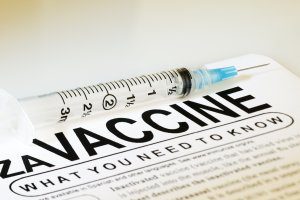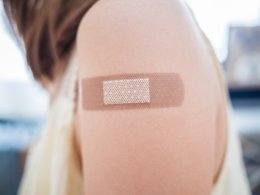 During pregnancy, vaccinations can provide protection against certain diseases for both the mother and the child. As the Centers for Disease Control and Prevention (CDC) explains, “Pregnant women share everything with their babies. That means when a pregnant woman gets vaccines, she isn’t just protecting [herself]— she is giving the baby some early protection too.”
During pregnancy, vaccinations can provide protection against certain diseases for both the mother and the child. As the Centers for Disease Control and Prevention (CDC) explains, “Pregnant women share everything with their babies. That means when a pregnant woman gets vaccines, she isn’t just protecting [herself]— she is giving the baby some early protection too.”
While the CDC provides general vaccine recommendations for adults, it provides certain specific recommendations for women who are pregnant. If you are expecting a child, it will be important for you to speak with your doctor about getting vaccinated during your pregnancy. Continue reading

 According to
According to  While receiving vaccinations is a safe and effective means for combatting disease, there are certain diseases and medical conditions that can increase an individual’s risk of an adverse reaction or other negative side effects. The Centers for Disease Control and Prevention (CDC) refer to these as “contraindications” and “precautions,” and it
While receiving vaccinations is a safe and effective means for combatting disease, there are certain diseases and medical conditions that can increase an individual’s risk of an adverse reaction or other negative side effects. The Centers for Disease Control and Prevention (CDC) refer to these as “contraindications” and “precautions,” and it  The measles, mumps and rubella (MMR) vaccine has recently been in the news as a result of reports of measles outbreaks in several parts of the country. According to the
The measles, mumps and rubella (MMR) vaccine has recently been in the news as a result of reports of measles outbreaks in several parts of the country. According to the  Each month, the Centers for Disease Control and Prevention (CDC) publish a newsletter highlighting recent news and updates in the world of immunizations. The CDC provides this newsletter, titled Immunization Works, to “national health care provider and consumer groups for distribution to their members and constituencies.” However, it is also
Each month, the Centers for Disease Control and Prevention (CDC) publish a newsletter highlighting recent news and updates in the world of immunizations. The CDC provides this newsletter, titled Immunization Works, to “national health care provider and consumer groups for distribution to their members and constituencies.” However, it is also  Although the Centers for Disease Control and Prevention (CDC) recommends vaccination as the best way to prevent the spread of the flu and other diseases, it also says that certain people should not get vaccinated. Since not getting vaccinated carries obvious risks, anyone who has questions about whether it is safe to receive a particular vaccination should consult their doctor.
Although the Centers for Disease Control and Prevention (CDC) recommends vaccination as the best way to prevent the spread of the flu and other diseases, it also says that certain people should not get vaccinated. Since not getting vaccinated carries obvious risks, anyone who has questions about whether it is safe to receive a particular vaccination should consult their doctor. Experiencing pain or an illness following vaccination can be frightening. Whether it’s you or a family member, knowing what to do – and where to turn for help – can be a challenge.
Experiencing pain or an illness following vaccination can be frightening. Whether it’s you or a family member, knowing what to do – and where to turn for help – can be a challenge.